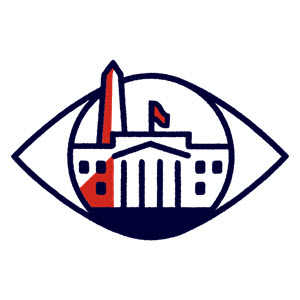IRS Proposes ACA Reporting Relief and Deadline Extensions

The proposed regulations, if finalized, would generally be effective beginning in 2022, but the IRS stated that entities may rely on the regulations now for 2021 reporting submissions.
The Internal Revenue Service (IRS) recently issued a proposed regulation which would permanently and automatically allow a 30-day extension for furnishing Affordable Care Act (ACA) reporting forms to individuals, eliminate transitional good-faith relief for inaccurate and incomplete Forms 1094 and 1095, clarify that minimum essential coverage (MEC) does not include Medicaid coverage that is limited to COVID-19 testing and diagnostic services provided under the Families First Coronavirus Response Act of 2020 (FFCRA), and provide an alternate method of distribution for Forms 1095-B. The proposed regulations, if finalized, would generally be effective beginning in 2022, but the IRS stated that entities may rely on the regulations now for 2021 reporting submissions.
The proposed regulation includes the following:
- Would provide a permanent and automatic extension of time for providing the statements to individuals to no more than 30 days after January 31, or the next business day if that extended deadline falls on a weekend or legal holiday. The proposed regulation has not changed the deadline for filing with the IRS. Those forms must be filed with the IRS by February 28 (if filing on paper) or March 31 (if filing electronically). Employers and coverage providers filing more than 250 forms must file electronically.
- Would eliminate Transitional Good Faith Relief for inaccurate and incomplete forms. The IRS will no longer accommodate employers filing incomplete or inaccurate information on Forms 1094 and 1095 (as previously permitted under Notice 2020-76).
- So long as the ACA individual mandate — otherwise known as shared responsibility — penalty remains zero, a small, self-insured employer may simply post a clear and conspicuous notice on the entity's website stating that responsible individuals may receive a copy of their Form 1095-B upon request. This would be an alternative from mailing out individual Forms 1095-B to each enrolled individual. The notice must include an email address, a physical address to which a request may be sent, and a telephone number that responsible individuals may use to contact a reporting entity with any questions. Some limited availability for Applicable Large Employers (ALEs) to utilize this alternative distribution method would also be included as described in more detail below.
- Would clarify that minimum essential coverage (MEC) doesn't include Medicaid coverage that is limited to COVID-19 testing and diagnostic services provided under the Families First Coronavirus Response Act of 2020 (FFCRA). This would mean that an individual who had such Medicaid coverage for any month could be eligible for the premium tax credit (PTC) for that month, assuming they met all other applicable requirements. This change to the definition of MEC, once the regulation is finalized, would apply for months beginning after September 28, 2020, but taxpayers applying for the PTC may rely on the proposed regulations for months beginning after September 28, 2020, and before the regulation is finalized.
Background
Internal Revenue Code (IRC) Section 6056 under the Affordable Care Act (ACA) requires Applicable Large Employers (ALEs) to report to the IRS whether they offer their full-time employees and their employees' qualified dependents the opportunity to enroll in minimum essential coverage (MEC) under an eligible employer-sponsored plan. An ALE is an employer that employed (any combination of workers within a controlled group) an average of at least 50 full-time employees (including full-time-equivalent employees) during the preceding calendar year. Employees are considered full-time in any month that they are credited with at least 30 hours of service per week, on average, or 130 hours of service in the month.
ALEs must furnish Forms 1095-C to employees or covered individuals regarding the health insurance coverage offered to them. Individuals may use this information to determine whether, for each month, they may claim the premium tax credit on their individual income tax returns. Form 1095-C is to be furnished and filed for each employee who was full-time for one or more months of a year and includes details of any health insurance coverage offered to the employee, reported on a monthly basis. For self-insured plans, Form 1095-C must also be provided to individuals who enrolled in qualified coverage, which may include non-full-time employees and any covered spouses and dependents.
Additionally, IRC Section 6055 under the ACA requires providers of MEC (such as health insurers and small, non-ALE employers sponsoring self-insured plans) to annually report certain coverage information to the IRS and enrolled individuals. Form 1095-B is used by these entities to report MEC coverage of enrolled individuals.
Deadline Relief
Forms 1095-B and 1095-C for a given year must be furnished to employees by January 31 of the immediately following year. The IRS has released guidance year-after-year-after-year granting an automatic 30-day extension. The IRS granted an automatic 30-day extension for ALEs to furnish Forms 1095-C to individuals for every tax year between 2016 and 2020, although such relief was always announced late in each year. The IRS announced in 2020 that it would no longer provide deadline extension relief annually.
While there has always been an option to secure a 30-day extension, it required a written request. The proposed regulation would provide a permanent and automatic extension of the deadline for providing Forms 1095-B and 1095-C to individuals without the need of any formal request.
Elimination of Transition Relief From Penalties
The IRC imposes a penalty for failing to timely file an Information Return or for filing an incorrect or incomplete Information Return (e.g., with an incorrect name and/or Social Security Number) as well as for failing to timely furnish an information statement.
The IRS previously provided transition relief from those penalties to ALEs that could show that they made good-faith efforts to comply with the ACA information-reporting requirements for 2015 through 2020. ALEs were eligible for relief, if they could show that they made good-faith efforts to comply with the reporting requirements for correct and complete information. No relief was provided for failure to file or to furnish a statement by the due dates. In determining good faith, the IRS would take into account whether an employer made reasonable efforts to prepare for reporting the required information and furnishing it to employees.
The transitional good-faith relief from penalties for the reporting of incorrect or incomplete information on information returns, which was intended to be temporary, is no longer available for reporting for tax year 2021 and subsequent years.
Alternative Manner of Furnishing Forms 1095-B
IRC Section 6055 requires providers of minimum essential coverage, such as health insurers and small, non-ALE employers sponsoring self-insured plans, to annually report certain coverage information to the IRS and to covered individuals. Forms 1095-B are used to report coverage to individuals so they may avoid the individual mandate penalty payment.
Due to the Tax Cuts and Jobs Act of 2017, the individual mandate penalty payment was reduced to zero after 2018. Therefore, Form 1095-B is no longer required for a taxpayer to compute federal tax liability or file an income tax return, although the requirement to furnish Form 1095-B remains. So long as the individual mandate penalty payment remains zero, the IRS will not assess a penalty for failing to furnish a Form 1095-B if: (1) the reporting entity posts a clear and conspicuous notice on its website that states that individuals may request a Form 1095-B and that the individual must provide an email and physical address to mail the statement and a phone number where they can be contacted; and (2) the reporting entity furnishes the statement within 30 days of the request. Reporting entities must generally retain the website notice until October 15 of the year following the calendar year to which the statement relates.
This alternative distribution method does not apply in its entirety to a large employer who self-insures.
An ALE offering a self-insured group health plan is generally required to use Form 1095-C, Part III, to meet the Section 6055 reporting requirements, instead of Form 1095-B. Self-insured ALEs may use this alternative distribution method for employees who are enrolled in the ALE's self-insured plan and who are not full-time employees, such as part-time employees or retirees. However, ALEs may not use the alternative method of furnishing for full-time employees who are enrolled in the self-insured plan. By comparison, for full-time employees of an ALE, the Form 1095-C may be provided to a recipient electronically only if the recipient affirmatively consents to receive the statement electronically in accordance with certain specific requirements. Those requirements include a clear and prominent disclosure that contains information such as the scope and duration of the consent, a description of the procedure for requesting a paper copy, and an explanation of the process for withdrawing consent. Those consent requirements for electronic distribution are included in Form 1095-C Instructions.
Self-insured ALEs should be aware that utilizing the alternative distribution method under this new rule could potentially conflict with requirements for states with their own individual mandate and reporting requirements (currently, California, New Jersey, Rhode Island and the District of Columbia). For example, California requires all employers to provide the applicable IRS Forms 1095-B and/or C that they would otherwise prepare to their employees by January 31st following the end of the plan year, consistent with the Affordable Care Act ("ACA"). So, this would otherwise conflict with the alternative method of distribution under the proposed rule. Further, there is nothing under the California mandate that would otherwise mirror the federal automatic deadline extension.
Medicaid Coverage of COVID-19 Testing and Diagnostic Services Excluded From Definition of Minimum Essential Coverage
To assist individuals and families who do not qualify for Medicare or Medicaid and are not offered health insurance through an employer, a refundable tax credit (premium tax credit) is available to help pay for coverage purchased through an Exchange. The IRS has provided guidance on when certain individuals are eligible for MEC under government-sponsored health programs (i.e., Medicaid, Medicare, CHIP, or TRICARE) or through self-funded student health plans and state high risk pools, and consequently disqualified them from receiving the premium tax credit.
Additional guidance has provided that Medicaid coverage that is limited to COVID-19 testing and diagnostic services under the Families First Coronavirus Response Act (FFCRA) is not MEC under a government-sponsored program. The proposed regulation would add this type of coverage to the list of limited medical or special eligibility benefits provided through government programs that are not considered to be MEC. As a result, an individual's eligibility for this type of coverage does not prevent an individual from obtaining a premium tax credit.
These proposed regulations would add this limited medical benefit to those coverages that don't constitute MEC
ADP Compliance Resources
ADP maintains a staff of dedicated professionals who carefully monitor federal and state legislative and regulatory measures affecting employment-related human resource, payroll, tax and benefits administration, and help ensure that ADP systems are updated as relevant laws evolve. For the latest on how federal and state tax law changes may impact your business, visit the ADP Eye on Washington Web page located at www.adp.com/regulatorynews.
ADP is committed to assisting businesses with increased compliance requirements resulting from rapidly evolving legislation. Our goal is to help minimize your administrative burden across the entire spectrum of employment-related payroll, tax, HR and benefits, so that you can focus on running your business. This information is provided as a courtesy to assist in your understanding of the impact of certain regulatory requirements and should not be construed as tax or legal advice. Such information is by nature subject to revision and may not be the most current information available. ADP encourages readers to consult with appropriate legal and/or tax advisors. Please be advised that calls to and from ADP may be monitored or recorded.
If you have any questions regarding our services, please call 855-466-0790.
ADP, Inc.
One ADP Boulevard, Roseland, NJ 07068
adp.com
Updated on December 13, 2021



